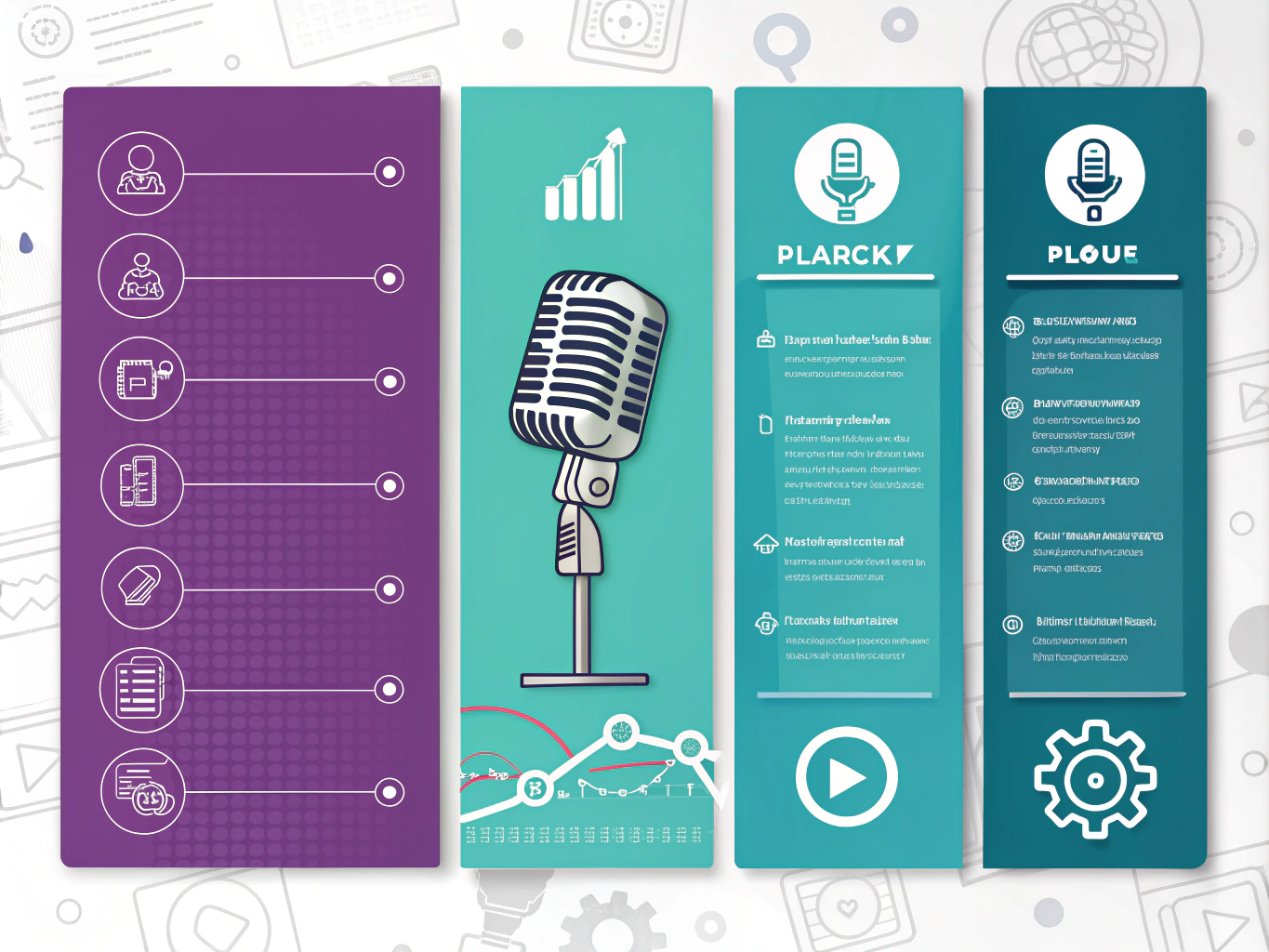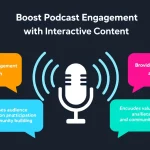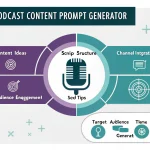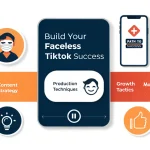Is this tool helpful?
How to Use the Podcast Development Guide Tool Effectively
Use this Podcast Development Guide Tool to create a clear roadmap for your podcast concept. Follow these steps to get the most detailed and practical advice for your show:
-
Main theme or niche for your podcast: Provide a focused topic to guide your content. For example:
- “Urban Gardening for Beginners”
- “Mindful Meditation and Wellness”
-
Description of your target audience: Describe who your ideal listeners are. Examples include:
- “Busy parents interested in quick healthy recipes”
- “Young entrepreneurs seeking startup advice”
-
Specific topics or content focus (optional): List areas or subjects you want to explore in episodes, such as:
- “DIY balcony garden setups, seasonal planting tips, guest interviews with botanists”
- “Guided meditations, stress reduction techniques, mindfulness in daily life”
-
Proposed podcast name (optional): If you have a catchy title, enter it here to help shape branding ideas. Consider:
- “The Urban Garden Project”
- “Calm Space Podcast”
- Click “Generate Podcast Guide”: The tool will analyze your inputs and create a personalized development plan tailored to your podcast’s theme and audience.
After submitting, you’ll receive a comprehensive guide that covers your podcast’s concept, content ideas, branding suggestions, monetization options, and distribution strategies. You can easily copy this guide for reference throughout your podcast planning and launching process.
Unlock Your Podcast’s Potential: What This Tool Does
This Podcast Development Guide Tool helps you build a solid foundation for your podcast by focusing on your unique vision. It prompts you to clarify your podcast’s theme, identify your target listeners, and outline content areas. Using your input, the tool generates customized guidance covering all essential aspects of podcast creation, from content planning to monetization and distribution.
Purpose and Benefits of the Podcast Development Guide Tool
- Clarifies Your Podcast Identity: Defines your niche and audience, helping you create content that connects.
- Structures Your Planning: Breaks podcast creation into manageable steps so you can launch confidently.
- Provides Tailored Recommendations: Adapts advice to your podcast’s specific theme and goals.
- Offers Monetization Insights: Suggests suitable revenue strategies to support your podcast financially.
- Saves Time and Effort: Consolidates key information to skip lengthy research and get right to producing.
How This Tool Supports Your Podcast Journey
Whether you’re new to podcasting or looking to refine your concept, this guide acts as your planning assistant, addressing critical areas:
- Concept Development: Helps you pinpoint your podcast’s focus and unique angle.
- Content Planning: Suggests episode ideas, formats, and themes aligned with your audience.
- Branding & Marketing: Provides ideas on naming, artwork, and ways to connect with your listeners.
- Monetization Strategies: Explains options like sponsorships, ads, merchandise, subscriptions, and crowdfunding.
- Distribution Channels: Recommends platforms for reaching your audience effectively.
Practical Use Cases for the Podcast Development Guide Tool
1. Starting a Health & Fitness Podcast
- Theme: Holistic Fitness and Nutrition
- Target Audience: Adults aged 30-50 interested in balanced lifestyle changes
- Content Focus: Workout routines, healthy recipes, interviews with trainers and nutritionists
- Proposed Name: “Fit Life Blueprint”
The tool would generate a guide that covers structuring fitness programs, creating engaging interviews, marketing tips, and monetizing through partnerships with wellness brands.
2. Developing a Technology Review Podcast
- Theme: Emerging Tech and Gadgets
- Target Audience: Tech enthusiasts aged 18-35 eager for product insights
- Content Focus: Product reviews, tech news, expert panels
- Proposed Name: “Tech Talk Weekly”
This guide would suggest episode formats, sourcing guest experts, advertising opportunities, and ways to expand reach using multiple platforms.
Common Challenges Addressed by the Podcast Development Guide Tool
Lack of Clear Direction
If you’re unsure where to begin or what to focus on, the tool breaks down your podcast into clear, actionable components. For example, defining your niche and crafting relevant episode ideas gives you a roadmap to follow.
Identifying the Right Audience
Many podcasters struggle to specify who their show is for. By asking you to describe your target listeners in detail, the tool guides you to narrow your audience, helping you create more targeted and engaging episodes.
Choosing Monetization Strategies
Monetizing a podcast can be confusing. This tool provides an overview of revenue options tailored to your niche, helping you decide on sponsorships, ad placements, merchandise, subscriptions, or crowdfunding campaigns that fit your audience and content style.
Overcoming Technical Hurdles
If you face uncertainty about equipment, editing, or distribution, the guide offers suggestions based on your podcast setup and budget. It recommends user-friendly tools and platforms to get you started without overwhelm.
Summary: How This Tool Fits Into Your Podcast Journey
- Define your podcast’s theme and audience clearly.
- Plan engaging content that resonates with listeners.
- Develop branding and marketing strategies tailored to your niche.
- Explore realistic monetization methods to support your podcast.
- Choose the right platforms for broad distribution.
Use this tool as your essential companion to navigate the podcast creation process smoothly, ensuring your project launches with a strong, well-planned foundation.
Important Disclaimer
The calculations, results, and content provided by our tools are not guaranteed to be accurate, complete, or reliable. Users are responsible for verifying and interpreting the results. Our content and tools may contain errors, biases, or inconsistencies. Do not enter personal data, sensitive information, or personally identifiable information in our web forms or tools. Such data entry violates our terms of service and may result in unauthorized disclosure to third parties. We reserve the right to save inputs and outputs from our tools for the purposes of error debugging, bias identification, and performance improvement. External companies providing AI models used in our tools may also save and process data in accordance with their own policies. By using our tools, you consent to this data collection and processing. We reserve the right to limit the usage of our tools based on current usability factors.







